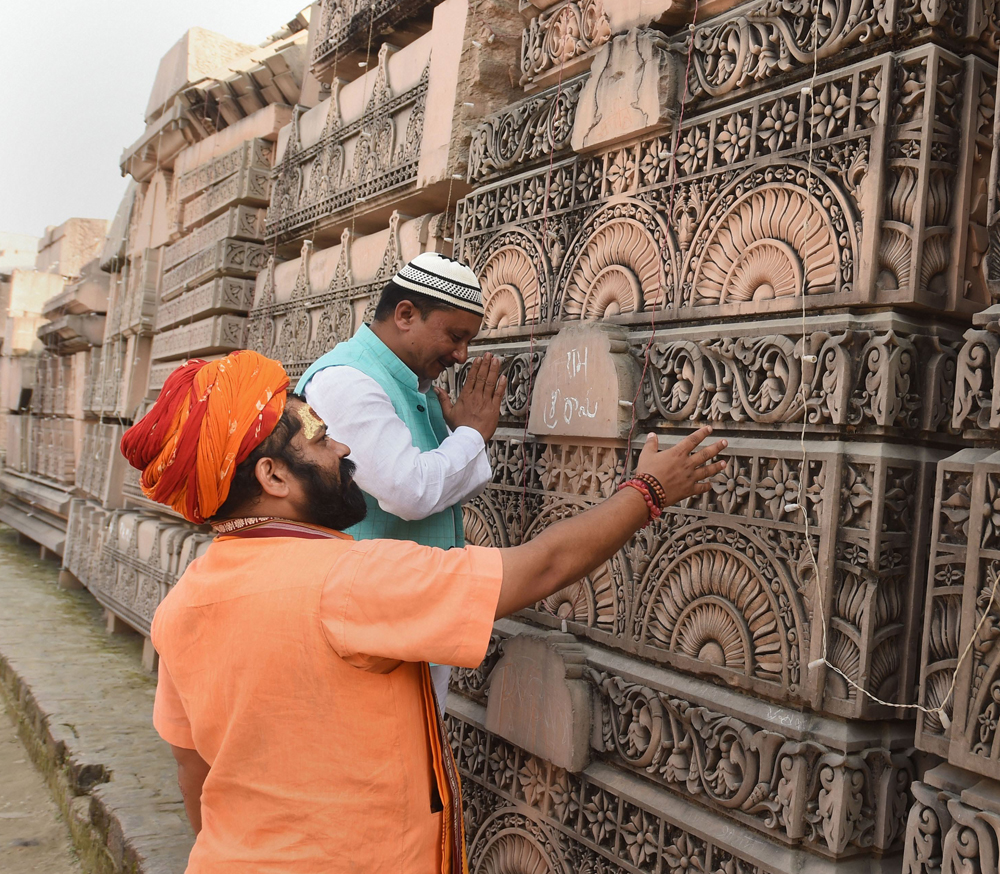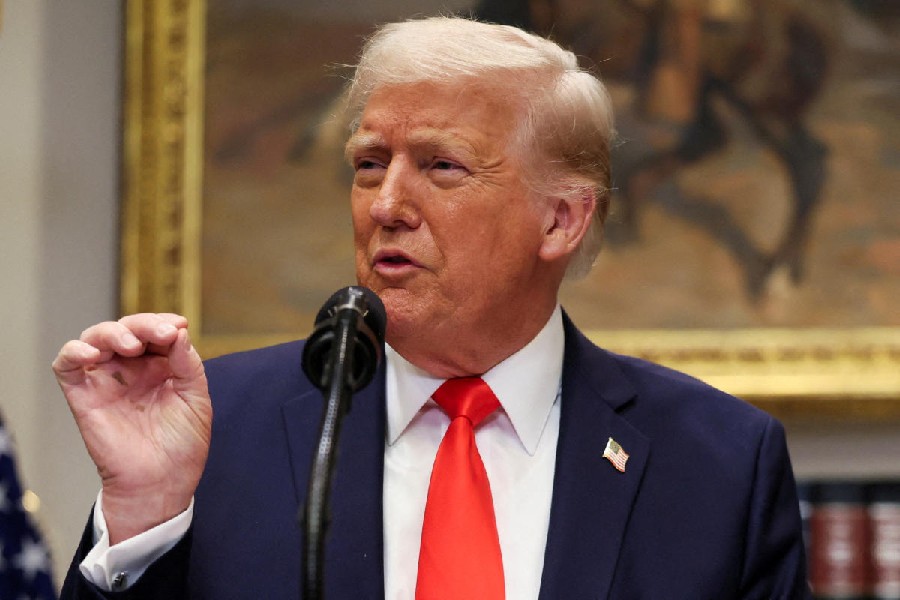The Supreme Court’s substantial reliance on the “faith and belief” of Ram’s devotees in deciding the Ayodhya title suit is problematic and can lead to more such litigation, several legal experts have told The Telegraph.
In allowing Hindus to build a Ram temple on the disputed plot where the Babri Masjid once stood, the apex court has cited not just archaeological findings but believers’ testimonies in lower courts, religious texts, travelogues and colonial official gazettes. It has concluded that Hindus have down the centuries held the plot to be Ram’s birthplace.
“Like any judgment this judgment too has problems. Can faith be used in deciding property disputes is one big question that in future will create a lot of litigation,” said Faizan Mustafa, vice-chancellor of the Nalsar University of Law in Hyderabad.
“The court asked the Muslims to discharge the heavy burden of proving their claim to the title but it accepted Hindu beliefs without much scrutiny. It rejected the revenue records and gazettes proving the Muslim title.”
Mustafa went on: “They (the five judges) accepted the core Muslim arguments that the mosque was not constructed after demolishing a Ram temple, the idols were illegally placed there in 1949 and that the demolition was a negation of the rule of law.”
He hoped that Saturday’s verdict would end the decades-old dispute that had divided Indians.
Justice Vangala Eshwaraiah, a former chief justice of Andhra Pradesh High Court, questioned the belief that God exists at a particular place or in a particular material object.
“We have to accept the judgment but we should help the people realise that God does not exist in matter. God is beyond matter. It’s our ignorance (that makes us think otherwise),” Eshwaraiah said.
Supreme Court lawyer Mehmood Parcha said that faith and belief could not be the basis for deciding a legal dispute.
“Faith and belief are personal issues. They cannot be a subject matter for a decision on a title suit. It (the Ayodhya verdict) has set a bad precedent,” Parcha said.
Parcha said it was a paradox that the apex court had favoured the side that it had found to have violated the law by demolishing the Babri Masjid in December 1992.
He expressed apprehension about the future of the many other mosques that are located near temples. “Our biggest fear is about the fate of these other thousands of mosques, including the ones in Mathura (near the Krishna temple) and Kashi (near the Kashi Vishwanath temple),” he said.
Parliament had passed a law in 1991 to protect the religious character of places of worship as they obtained on August 15, 1947. But Parcha doubted whether this law would be honoured.
Saturday’s judgment defended the reliance on religious texts, travelogues, official gazettes and oral evidence.
It referred to oral court submissions by several people, among them Mahant Paramhans Ramchandra Das, one of the accused in the Babri demolition case who died in 2003.
Cross-examined in court, Das had said: “The place which I describe as ‘garbh griha’ (sanctum sanctorum) is according to my belief and according to the belief of all Hindus the birthplace of Ramchandraji.”
Saturday’s judgment said the testimonies of both Hindu and Muslim witnesses indicated that Hindu pilgrims visited the disputed plot on major religious occasions.
It referred to the Valmiki Ramayan and the Ramcharitmanas, which say that Ram was born in Ayodhya.
It also cited colonial government gazettes that referred to the Hindu belief that the Babri Masjid was built on Ram’s “janmasthan” (birthplace), and similar claims in 18th and 19th-century travelogues by the Jesuit missionary Joseph Tiefenthaler and Anglo-Irish writer Robert Montgomery Martin.
The judgment referred to the Hindu text Brihad-Dharmottara Purana, which describes Ayodhya as one of Hinduism’s seven holiest cities.
It also cited the Archaeological Survey of India’s finding of the ruins of an “underlying… temple architecture” while accepting that the ASI had not said whether it was demolished to build the mosque.
“It is thus concluded… that faith and belief of Hindus since prior to construction of mosque and subsequent thereto has always been that Janmasthan of Lord Ram is the place where Babri Mosque has been constructed, which faith and belief is proved by documentary and oral evidence discussed above,” the judgment said.











